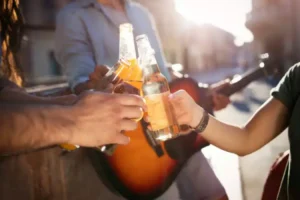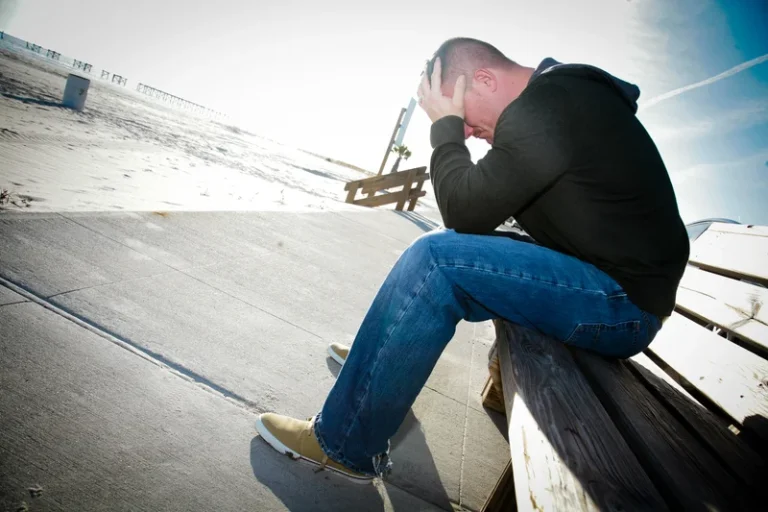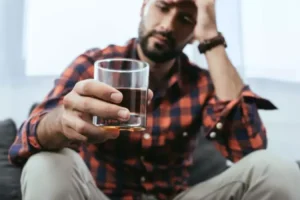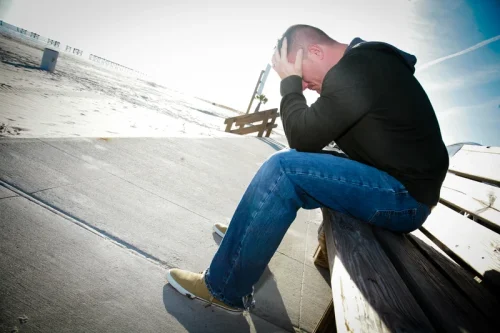
Remember that drinking can lower inhibitions and impair judgment, so once you go past your set limit you might have a harder time stopping. You might start the night with the intention of drinking one or two beers. An hour or two later, you’re more intoxicated than you wanted to be. Quitting alcohol alone is harder for some than others, but there’s no need to go it alone.
Set Personal Goals
People often use binge drinking as a way to self-medicate symptoms of depression, anxiety, and stress. You may do it as a way to relax after a difficult day at work or blow off steam after college exams. Many people also use drinking to cope with difficult periods in their life, =https://ecosoberhouse.com/ such as the death of a loved one or the end of a romantic relationship. However, alcohol is a depressant, so it will ultimately make you feel even worse. How quickly a person’s body absorbs alcohol may depend on their sex, age, and body size.
Short-term effects and health risks of binge drinking
This can be particularly true of teens who want to drink to seem older or more mature. Maybe you feel overconfident in your ability to drive while intoxicated, or you don’t think of the risks involved with physical stunts or going home with a stranger. But the next morning, you notice that your depressive symptoms or anxious thoughts are worse than usual. Although drinking this much might not seem like a big deal amphetamine addiction treatment in the moment, you may regret your choices later.
Interpersonal Therapy
However, this relief is short-lived, and the underlying stress remains unresolved, often leading to increased drinking to maintain that fleeting sense of calm. If you or someone you know is struggling with an alcohol problem, reach out for professional support before it’s too late. BetterHelp offers affordable mental health care via phone, video, or live-chat.

Did this article help you?

Your loved one might deny the problem, deflect, or get mad at you. Reassure yourself that speaking up is a compassionate gesture. If you don’t voice your concerns now, your loved one may not give up their alcohol abuse until they experience more severe consequences. If you’re a binge drinker, you may not drink every day, but when you do start drinking, you likely have a hard time calling it quits after just one or two drinks.
- If you’ve identified that you’d like to change your relationship with alcohol, you’ve taken the first step on your journey to wellness.
- For example, you might feel tempted to recline on your couch, drink beer, and watch television simply to kill the hours spent alone.
- Periods of isolation or a lack of direction in life can lead individuals to use alcohol to fill the void.
- Maybe you’ve tried to quit in the past but get lured back by peer pressure from friends who want to “turn up” on the weekends.
You might find it helpful to choose an accountability partner who has also struggled with binge drinking. This can be one of your in-person friends, or even someone you met through an online support group. This can add an extra layer of understanding and honesty that you might not get with a partner who hasn’t ever wanted to change their drinking habits. Fortunately, binge drinking can be treated with holistic methods including community support, specialized alcohol therapy, and prescription medication to stop drinking. At Monument, we’ve brought all of these tools online so you can make progress on your own terms, and own time. It’s important to know that a binge drinking habit can be treated with the right tools.
- Learning how to stop binge drinking is a personal journey that requires commitment, support, and practical strategies.
- The spiral from binge drinking into alcohol addiction can be a gradual process.
- However, for some, one drink can quickly become three or four.
- Maybe you don’t think you depend on alcohol exactly, but you still wonder whether you might be drinking too much.
- In more scientific terms, it blocks the endorphin receptors that alcohol would otherwise bind to.
Identifying Symptoms of Alcohol Dependence
According to a new study recently published in Forbes, scientists may know why we binge drink even when we want to stop. You don’t want to lose precious years of your life to hang out with people who serve no genuine good for you in the long term. For every additional drink you consume per day over the three per week, you increase your risk by 10%. Naturally, you may wonder how much alcohol you have to drink to get to that point.

The chances are especially high for people who drink heavily during their teen years. Teenage binge drinkers are about three times more likely to develop alcohol use disorder. how to stop binge drinking Relapse prevention counseling, often involving cognitive-behavioral therapy (CBT), equips individuals with skills to manage triggers and build resilience. Techniques like mindfulness and motivational interviewing are also beneficial.



